Greece will legalize same-sex marriage,
despite Orthodox Church opposition
When a government opposes both the church and God, it's probably not a good thing for the country.
Greece’s center-right government said Thursday it would fulfill a commitment to legalize same-sex marriage, sidestepping staunch opposition from the country’s influential Orthodox Church.

The legislation would be brought to parliament during the house’s current term, which ends in 2027, said government spokesman Pavlos Marinakis.
The statement comes after the Church’s governing Holy Synod issued a 1,500-word opinion late Wednesday, expressing strong opposition to the proposal. The Church’s main argument centered around the issue of raising children, claiming they are being treated as “accessories” and “companion pets” for gay couples.
“We always listen to the opinions of the Church with respect,” Marinakis said. “But at the same time, we are implementing our policy, and will listen to the views of society, civil society, the citizenry, institutions, and parties in total.”
The Church argues that extending marriage rights would create a legal obligation to eventually follow up with parental rights under international rights obligations that Greece has signed up to.
“The position of the Church of Greece remains that children have an innate need and therefore a right to grow up with a male father and a female mother. No amount of social modernization and no amount of political correctness can bypass (this),” the Church circular said.
“Children are not companion pets for those who wish to feel like a guardian, and are not `accessories’ to formalize or make same-sex cohabitation socially acceptable,” it added.
The comment drew widespread attention in the Greek news media.
Opinion polls suggest Greeks are evenly divided on the issue of same-sex marriage, but opposed to extending full parental rights to gay couples.
Same-sex marriage is legal in 34 countries globally, according to the Human Rights Campaign Foundation, a U.S. association created to monitor discrimination against LGBTQ+ people. None of the countries on that list are majority Orthodox Christian like Greece, although several have legalized civil partnerships in recent years.
Prominent members of Greece’s governing conservatives have publicly expressed support as well as opposition to the government’s commitment while left-wing and center-left opposition parties are generally supportive.
The country’s left-wing opposition leader, Stefanos Kasselakis, married his male partner in New York in October, several weeks after winning a party leadership election.
Greece legalized same-sex civil partnerships in 2015.
Government Assisted Suicide and Death
Canada style. WEF-trained young leader Justin Trudeau seems to have found a way to reduce government expenses. Coming soon to other WEF client states!
Assisted Euthanasia in Canada is called the “Medical Assistance in Dying” (MAiD) program. Assisted death first became legal in Canada in June 2016, but only for those whose death was reasonably foreseeable.
In the beginning of 2021, the law was further amended to include those suffering from a “grievous and irremediable condition whose death was not reasonably foreseeable”. According to the government - in 2022, there were 13,241 assisted deaths reported in Canada.
Here are the raw numbers of assisted suicides since the program’s inception, according to MAiD reports.
Even the United Nations is alarmed, and has stated that a government assisting people with dying for non-terminal conditions contravenes Article 10 of the UN Convention on the Rights of Persons with Disabilities.
The statistics for the administration of death are shocking.
At some point, if there had been a “backlog” of people requesting medically assisted deaths, the numbers should have leveled off or even gone down. Instead government assisted suicides are rising. In 2022, the majority of written requests (13,102 or 81.4%) resulted in the administration of death.
Medically assisted deaths constituted 4.1% of all deaths in Canada in 2022, according to the government’s report.
Another Canadian government report issued this year specifically addressed the assisted deaths (MAID) of minors, and has recommended the following:
In reading the above text, it appears that the government has an interest in minors in the child welfare system and assisted death. Why the government should be interested in that causes many red flags. As disabled children and children with terminal diseases, such as cancer, are a huge financial burden to government, the fact that the Canadian government is specifically listing children already in the welfare system is tone deaf at best.
The thing about assisted suicide, and let’s call it what it is - is that government has a conflict of interest. Once they step in, it is truly a slippery slope.
But it gets worse, because the MAiD program is being run by the very same activists who pushed through the 2016 law in the first place/
The federal government chose a right-to-die advocacy group to help implement its medical assistance in dying legislation. It’s a classic case of regulatory capture, otherwise known as letting the foxes guard the henhouse.
In the “Fourth annual report on Medical Assistance in Dying in Canada 2022,” the federal government devoted several paragraphs of praising to the Canadian Association of MAID Assessors and Providers (CANMAP).
“Since its inception in 2017, (CAMAP) has been and continues to be an important venue for information sharing among health-care professionals and other stakeholders involved in MAID,” reads the report.
With $3.3 million in federal funding, “CAMAP has been integral in creating a MAID assessor/provider community of practice, hosts an annual conference to discuss emerging issues related to the delivery of MAID and has developed several guidance materials for health-care professionals.”
Six clinicians in British Columbia formed CAMAP, a national non-profit association, in October 2016. These six right-to-die advocates published clinical guidelines for MAID in 2017, without seriously consulting other physician organizations.
The guidelines educate clinicians on their “professional obligation to (bring) up MAID as a care option for patients, when it is medically relevant and they are likely eligible for MAID.” CAMAP’s guidelines apply to Canada’s 96,000 physicians, 312,000 nurses and the broader health-care workforce of two-million Canadians, wherever patients are involved.
The death ritual in Logan’s Run comes to mind. Creepy yes - but government always knows best… right?
Obviously, the Canadian government would never stoop so low as to consider targeted killing of “old” people…
But what about? -
Vulnerable people?
Drug addiction?
Yes - as drug addiction is a form of mental illness, killing drug addicts is also being seriously considered. I mean, it would be for “their own good”. That way, they couldn’t die of an overdose? <insert sarcasm>.
What about homelessness?
Has the sitting Canadian government become a death cult? What do you think about the ethics of all of this?





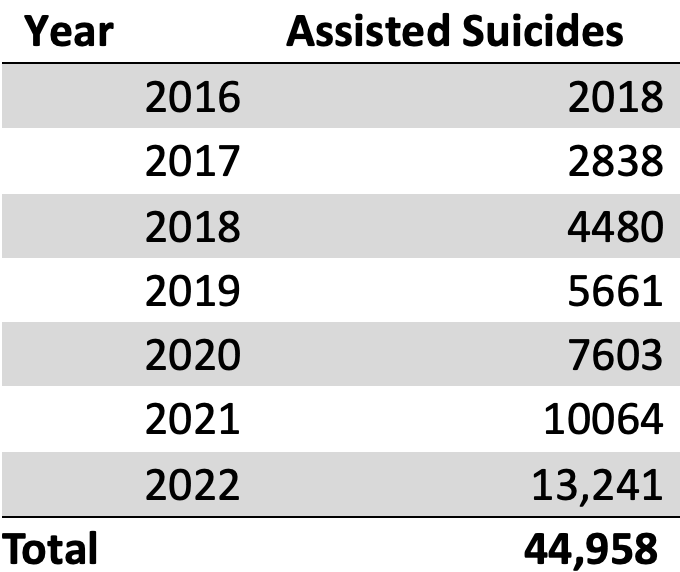
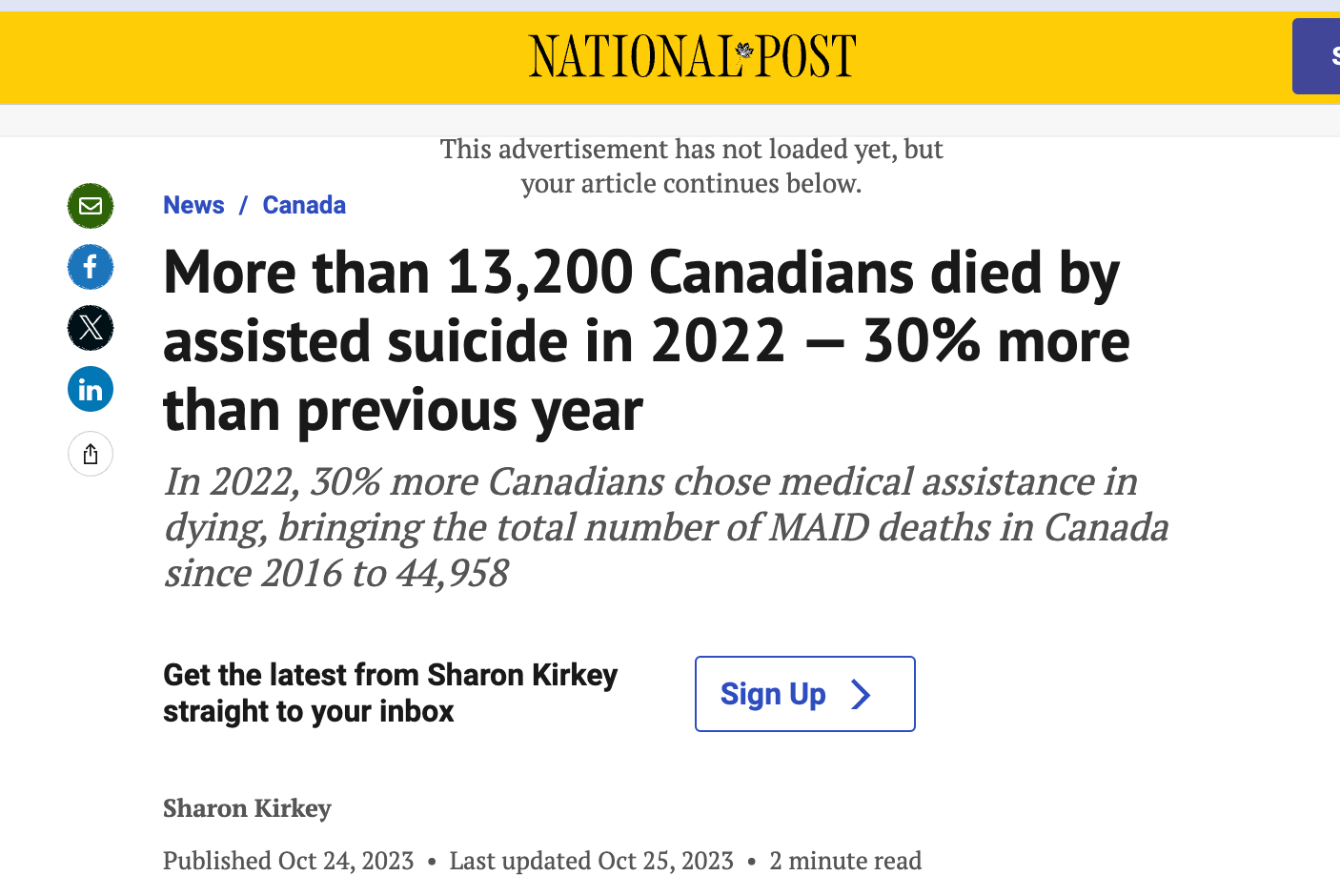
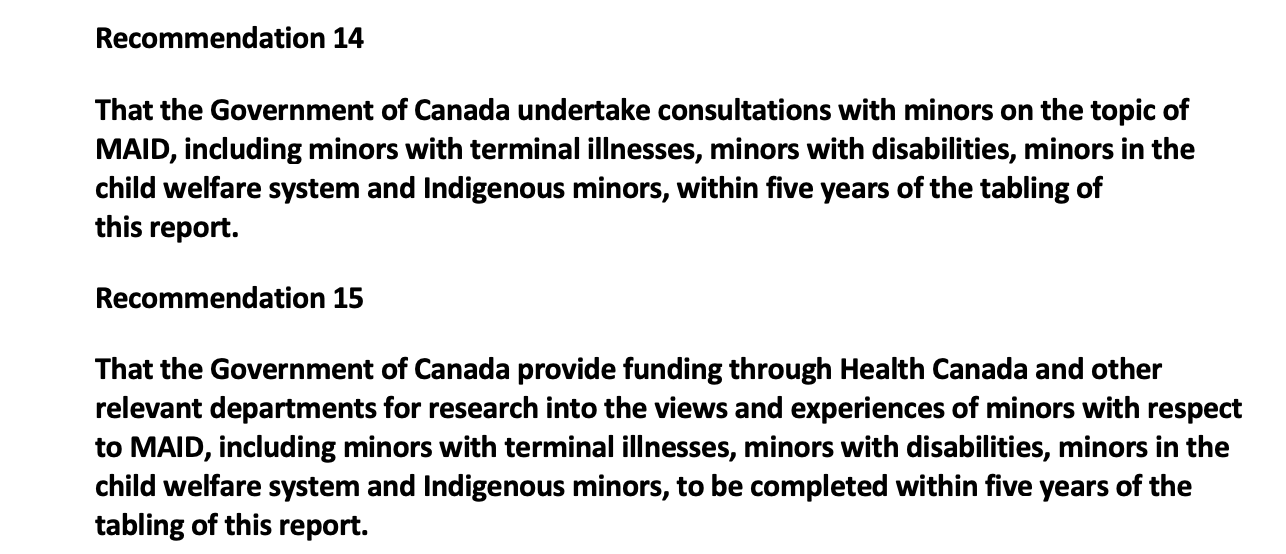
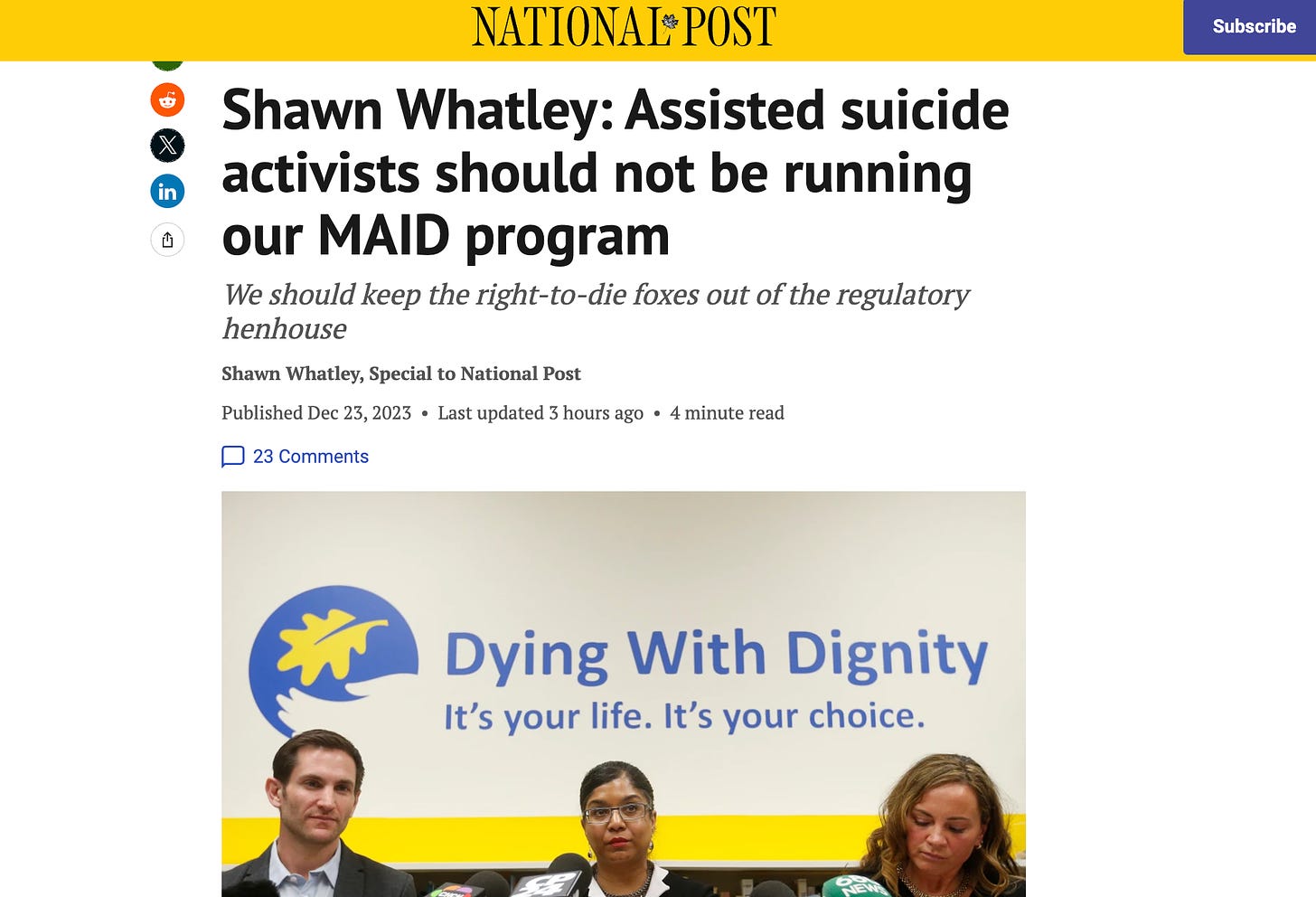
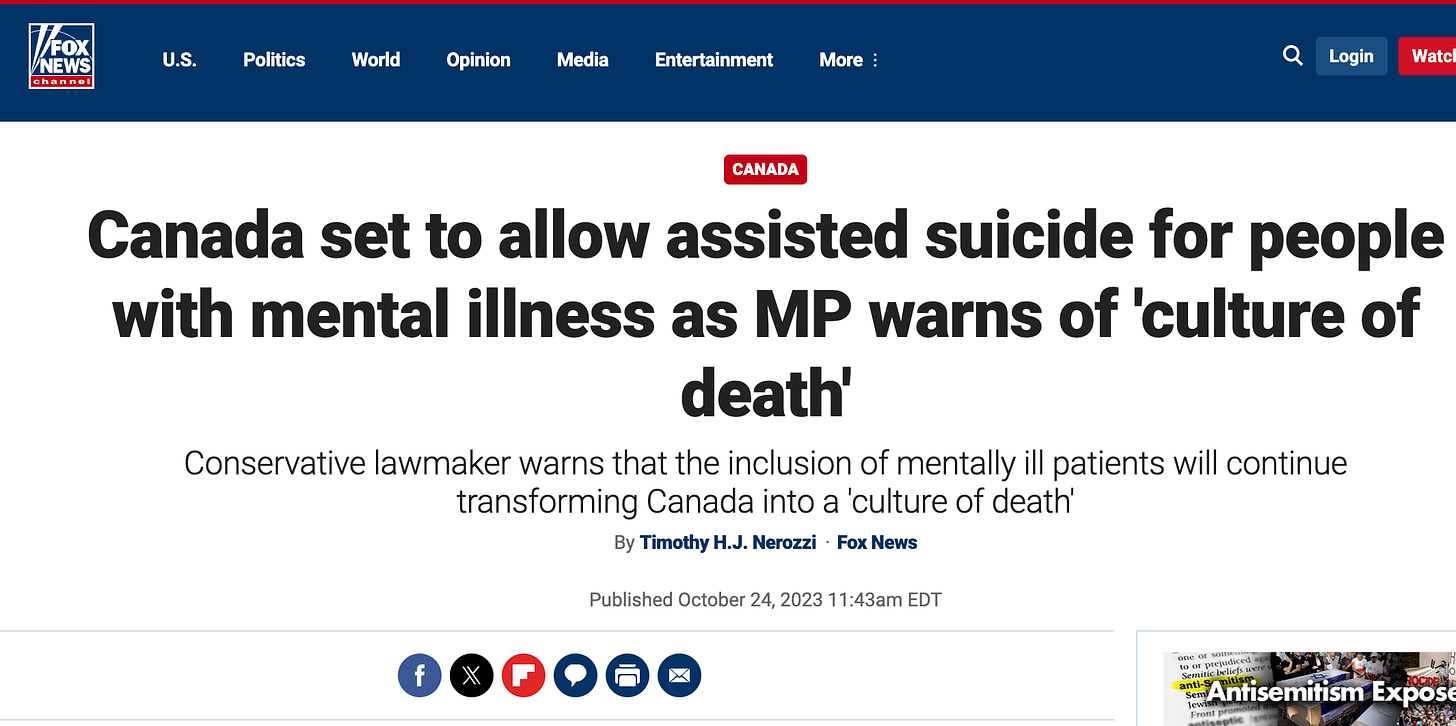
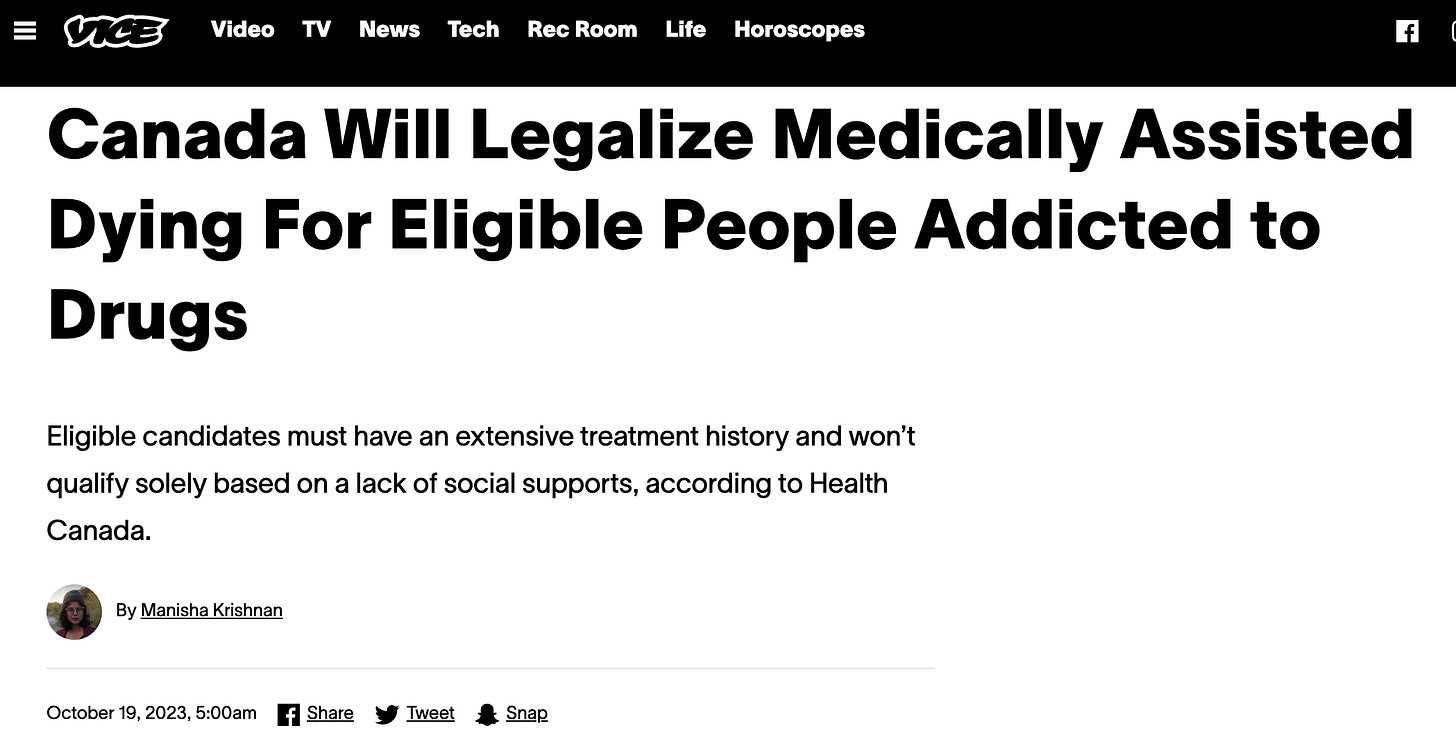
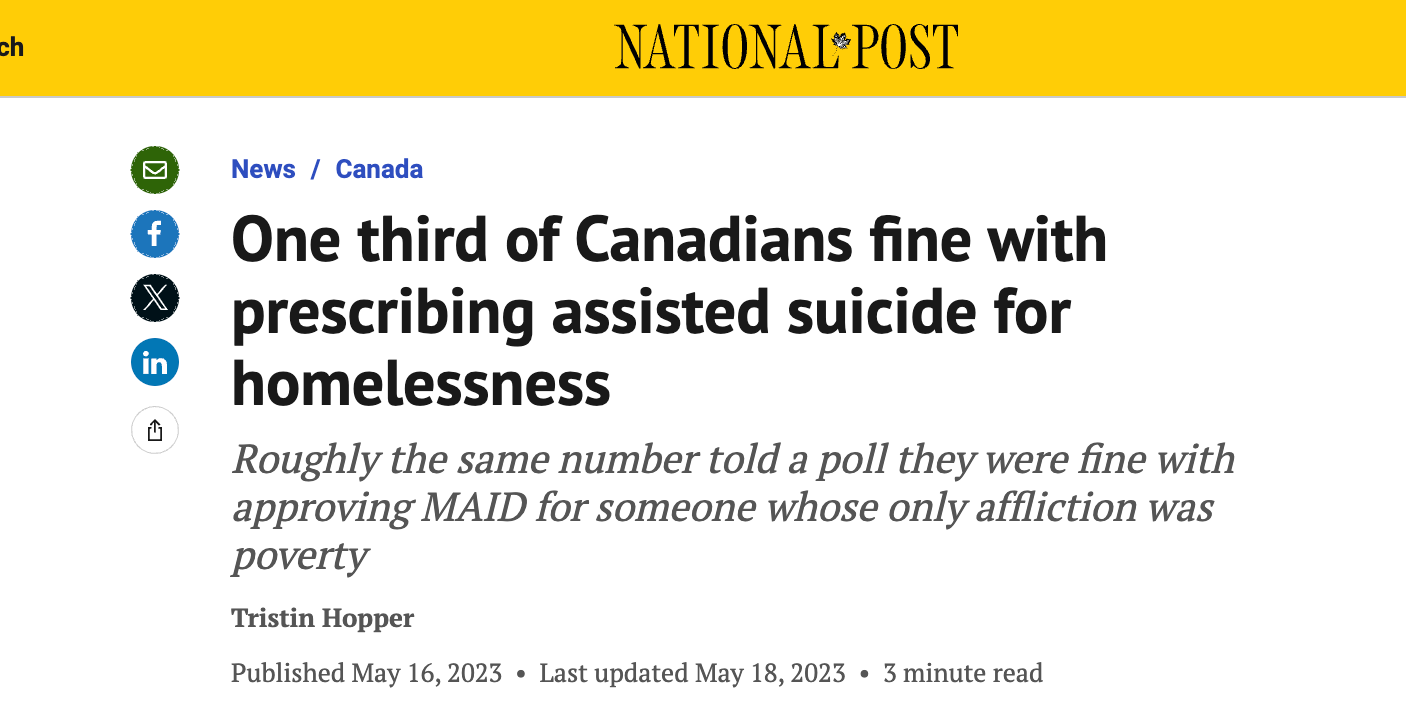
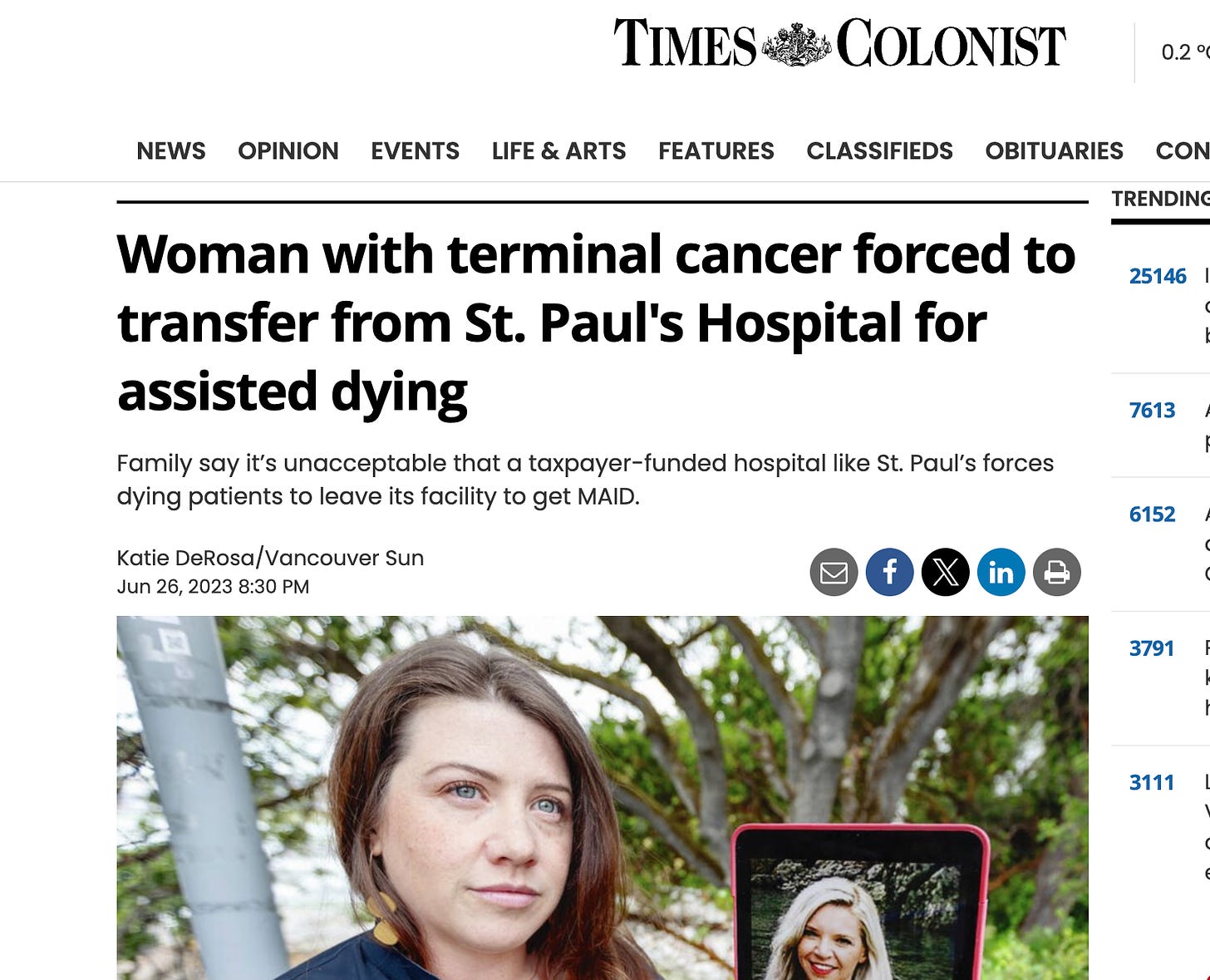
No comments:
Post a Comment